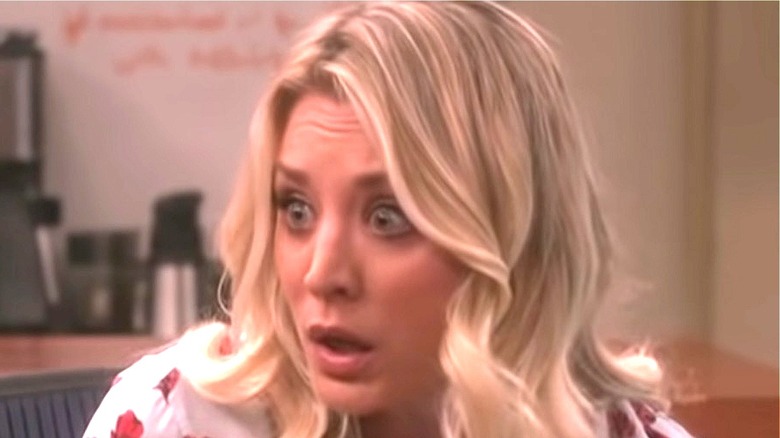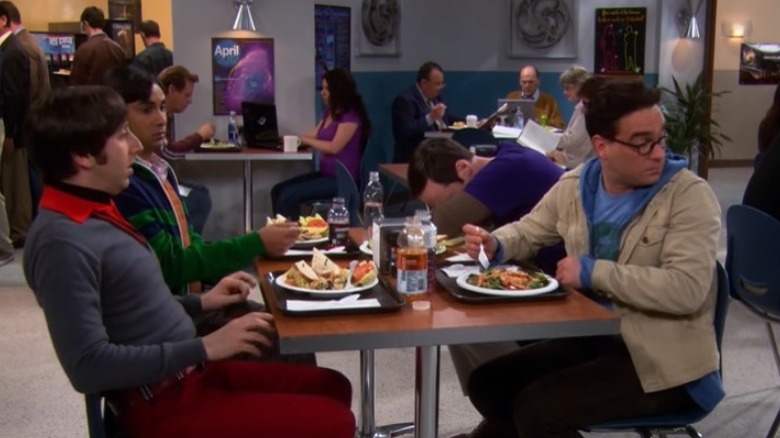The Dark Theory That Changes Everything About The Big Bang Theory
The premise of "The Big Bang Theory" seems innocent enough: An attractive woman, Penny (Kaley Cuoco), moves in across the hall from two Caltech physicists, Leonard Hofstader (Johnny Galecki) and Sheldon Cooper (Jim Parsons), who share an apartment in Pasadena. Over time, they and their respective social groups get to know each other, become friends, enter into relationships, and become one big family. During its 12-year run, "The Big Bang Theory" used real, scientific truths as the basis for many of the topics presented — with countless reports revealing the actual expertise behind what was being discussed on each episode (via NPR).
Everything sounds simple enough on the surface, but what if we told you that there's another, more sinister way of looking at Chuck Lorre and Bill Prady's iconic sitcom? What if there was actually much more than meets the eye when it came to Leonard, Sheldon, engineer and astronaut Howard Wolowitz (Simon Helberg), and astrophysicist Raj Koothrappali (Kunal Nayyar) and the work they were doing at Caltech? Let's dive into a dark fan theory, conjured up by Cracked, about what could have really been going on with the "Big Bang Theory" gang.
The Big Bang Theory: A secret history of the end of the universe
Apparently, "The Big Bang Theory" was secretly about the apocalypse, or at least that's the idea being offered up. "The Big Bang Theory is secretly a history of the end of the universe and the idiot man-child scientists who will bring it about," explains Cracked's Alex Schmidt. "This show's events are set in a specific time in the chronology of the universe, a chronology eventually defined by human activity whose endpoint is the goofy main characters we've come to know and love," he adds.
According to Schmidt, the characters on "The Big Bang Theory" are ultimately responsible for bringing down mankind's entire existence because they are too busy dealing with the nonsense of their daily lives to spend time on Caltech projects and other important work, like finding ways to save the universe from hypothetical threats. One of these threats is the Big Crunch, "a scenario where the universe reaches its limit, collapses back in on itself, and reboots with another Big Bang, killing all of us," Schmidt explains. "The show's scientists are bogged down in sitcom-relationship drama and weekly comedic wackiness," he says. "There's no chance they can focus on their work, and they work at Caltech, one of the most advanced scientific institutions on earth." While we now know in 2022 that this tongue-in-cheek theory never came to fruition, it sure does make you think what could have happened on "The Big Bang Theory" if a different approach had been taken.

